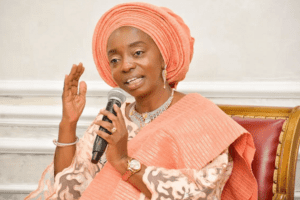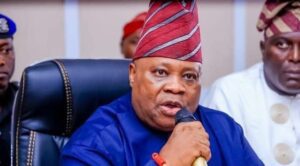Speaker Abbas demands skill, knowledge from members
The Speaker of the House of Representatives, Tajudeen Abbas, has demanded the need for the acquisition of requisite skills and knowledge from fellow legislators in order to fulfil their legislative responsibilities.
Abbas said this a message to a meeting between legislators and Development Partners, Donor Agencies, Technical Partners and Civil Society Organisations (CSOs) on the Capacity Needs Assessment of the House of Reps in Abuja on Monday.
The Speaker, represented by the Majority Leader of the House, Julius Ihonvbere, said “as legislators, we must have the necessary skills, knowledge, and resources to fulfill our responsibilities effectively.”
He said in order to address the challenges effectively, the House in its legislative agenda identified capacity development as a key avenue of equipping the legislature to deliver quality services.
This, according to him, would be in terms of representation, oversight and lawmaking.
According to Abbas, “I established the Programmes Coordinating Unit (PCU) under my office for the purposes of coordination, implementation, monitoring and evaluation of all technical support and capacity development drive of the House.”
He said some progress had been achieved following its initial meeting, adding that the technical partners and supporters had been collaborating with the PCU to provide various forms of assistance to the House.
“This demonstrates your dedication to strengthening our democracy. We appreciate your ongoing support and will continue to seek your cooperation in our efforts to enhance the legislative institution.”
He said, “in order to ensure a well-coordinated and impactful collaboration with you, the PCU has recognised the necessity of formulating a comprehensive Parliamentary Development Programme.”
He said the programme would serve as a guiding framework for collective efforts, adding, to achieve this, it was essential to conduct a capacity needs assessment of the House.
“The purpose of this assessment is to gain a comprehensive understanding of the House’s capacity requirements. By doing so, we can effectively allocate our resources and interventions.
“The capacity needs assessment is an essential process that would enable us to evaluate our strengths and weaknesses as an institution.”
This, according to him, would provide valuable insights into areas where the House could improve its legislative processes, oversight mechanisms, and overall effectiveness in representing the interests of the citizens.
Mr Salaudeen Hashim, Director of Programme, Clean Foundation, said there was the need to have gender agenda and social capital gap, adding that it was also imperative to find the need to build confidence of citizens in the country.
“We need to rebuild that patriotism in the national assembly via deliberate intervention and activities by parliamentarian, we need a lot of support system and reengineering at the committee level,” he said.
The other partners in attendance were YIAGA Africa and Budget, among others.




